Plan 111 Project
Plan 111 is a project started in 2006 by the Ministry of Education of the People’s Republic of China, which established 100 new research and innovation centers to host, among others, 1000 international researchers from the world's top 100 universities. Designated research centers include China Medical University, based in Shenyang in the Liaoning region, where Prof. Marco Stoller has been called as an expert in nanotechnology.
Prof. Marco Stoller is Associate Professor of Chemical Plants in the Department of Chemical Materials and Environmental Engineering of Sapienza University of Rome, and is lecturer of courses related to Chemical Engineering, Civil and Industrial Engineering in the city of Latina and Nanotechnology Engineering. His research mainly focuses on industrial applications, in particular on membrane processes and process intensified equipment for the production of nanomaterials. As a member of the Council of the Italian Association of Chemical Engineering and the European Membrane Society, he has a strong inclination towards formation of new networks abroad.
Starting in December 2019 and for the next 5 years, Sapienza University of Rome and China Medical University have signed a Framework Agreement to promote the activities of the involved research groups in nanotechnology and medicine, by means of joint scientific collaborations, dissemination of the results, staff and student exchanges.
"I feel honored and lucky to have been called to be part of this project, and I believe that this action can bring further international prestige and visibility to our University. I thank the working group in China, in particular Prof. Chen, Prof. Chen. Gao, Prof. Xu, Dr. Qi and Abdu, of the Department of Dermatology at CMU, who gave me a very warm welcome." comments Prof. Marco Stoller. "I hope that in the near future our Universities can be an example and further promote scientific cooperation between Italy and China to reach cutting edge results; the same wish was also expressed by the Vice President of China Medical University Liu Ying during her welcome speech."
Prof. Marco Stoller says that this project will lead to an enforcement of teaching and scientific research in the fields of bioengineering, chemistry, nanotechnology and medicine, and concludes by telling a funny anecdote: "Given the difficulty of my Chinese colleagues to pronounce my German surname, often they call me Marco Polo: it makes me smile, and I think this is a sign of good wish to our successful collaboration."
Prof. Marco Stoller visiting the Rectory of China Medical University, Shenyang, China, December 2019


